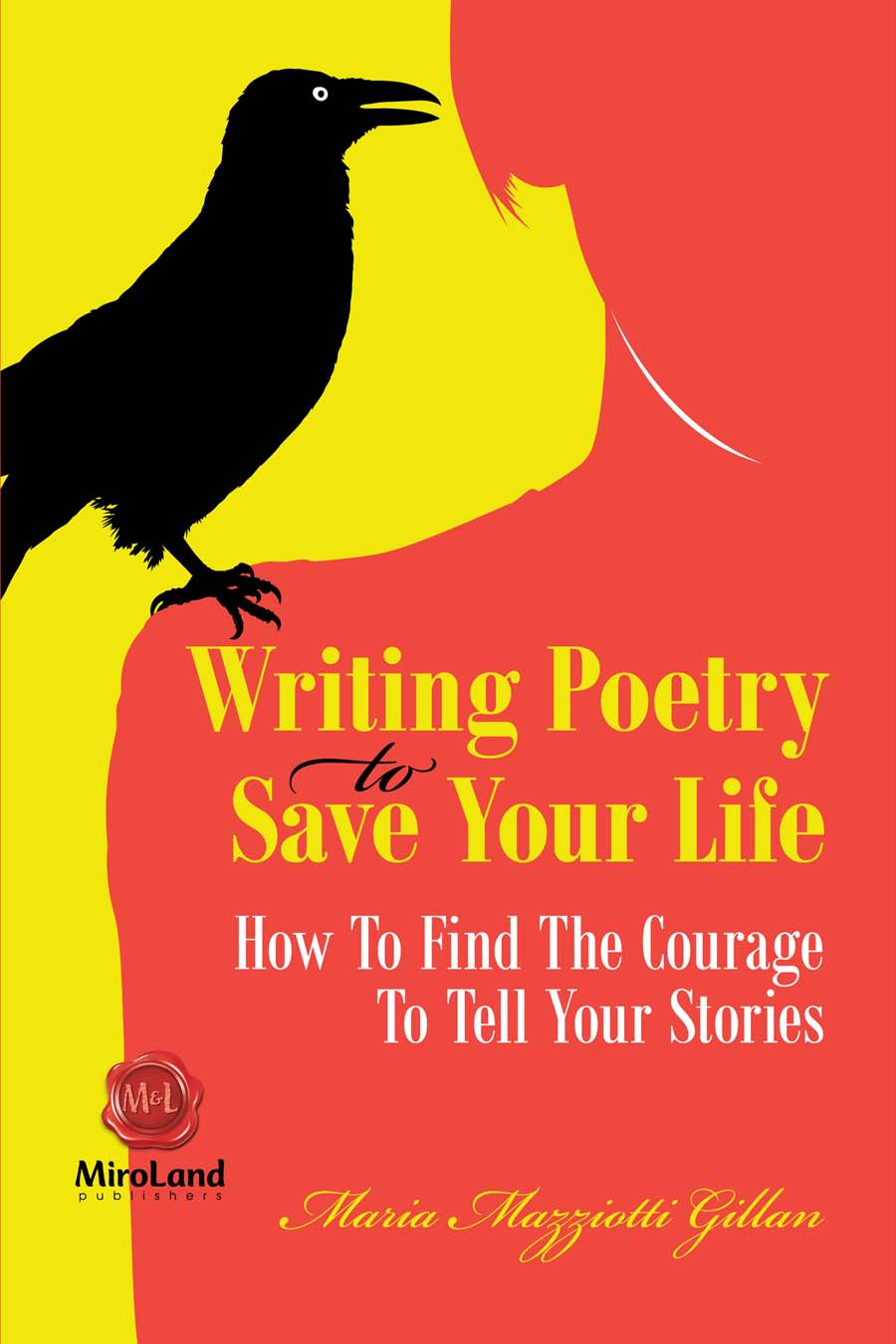 Writing Poetry to Save Your Life: How to Find the Courage to Tell Your Stories Maria Mazziotti Gillan
Writing Poetry to Save Your Life: How to Find the Courage to Tell Your Stories Maria Mazziotti Gillan  MIROLAND (GUERNICA) TORONTO BUFFALO BERKELEY LANCASTER (U.K.) 2013 Contents Introduction When I first started to consider putting together a book about writing poetry, I thought about how frightened people often are by the idea of poetry writing it, reading t, feeling that they have anything to write about that anyone else would be interested in reading. I realized that my whole life as a poet and teacher was dedicated to giving people a feeling that their lives, that what they have to say, is important. I believe we all have stories to tell, and that those stories are the basis for writing poems that reach across the barriers of age, ethnicity, gender, social class to connect with all that is human inside us. I think of William Faulkners Nobel Prize acceptance speech in which he said: Writing today has forgotten the problems of the human heart in conflict with itself which alone can make good writing because only that is worth writing about, worth the agony and the sweat. In order to overcome our own fear about writing, our own lack of self-confidence in facing the blank page, we need to learn to let go. When were writing, we need to get to that place where the pen moves almost by itself.
MIROLAND (GUERNICA) TORONTO BUFFALO BERKELEY LANCASTER (U.K.) 2013 Contents Introduction When I first started to consider putting together a book about writing poetry, I thought about how frightened people often are by the idea of poetry writing it, reading t, feeling that they have anything to write about that anyone else would be interested in reading. I realized that my whole life as a poet and teacher was dedicated to giving people a feeling that their lives, that what they have to say, is important. I believe we all have stories to tell, and that those stories are the basis for writing poems that reach across the barriers of age, ethnicity, gender, social class to connect with all that is human inside us. I think of William Faulkners Nobel Prize acceptance speech in which he said: Writing today has forgotten the problems of the human heart in conflict with itself which alone can make good writing because only that is worth writing about, worth the agony and the sweat. In order to overcome our own fear about writing, our own lack of self-confidence in facing the blank page, we need to learn to let go. When were writing, we need to get to that place where the pen moves almost by itself.
What I hope to accomplish in this book is to give writing prompts that will help you to get past all the outside influences that keep you from believing in yourself and in your ability to write. In order to write, you need to get rid of notions about language, poetic form, and esoteric subject matter all the things that the poetry police have told you are essential if you are to write. I wanted to start from a different place, a place controlled by instinct rather than by intelligence. Revision, the shaping and honing of the poem, should come later,and, in revising, be careful to retain the vitality and electricity of the poem. Anyone can learn to craft a capable poem, but it is the poems that retain that initial vitality that we remember; these are the poems that teach us how to be human. When I first started to write, I read an enormous amount of poetry and was influenced by that poetry to imitate these famous poets.
Those years of imitation taught me about the beauty of language, the music of it, the way that words shaped into a poem can sing as the poems of Dylan Thomas sing. Gradually, I discovered a very American music in the poems of Walt Whitman and Allen Ginsberg. The universal is in the particular, William Carlos Williams said, and he influenced American poets from Ginsberg to Galway Kinnell to Lucille Clifton to Sharon Olds to Jimmy Santiago Baca to Mark Doty to Anne Sexton to Adrienne Rich to Stanley Kunitz to Robert Creeley. Under the influence of Whitman and Williams and Ginsberg, American poets have generated an impressive body of electric, exciting, original, and moving American writing. Since I started out imitating Keats and Shelley, I was 40 before I learned to believe that people might be interested in reading poetry by a working-class Italian American mother, wife, and grandmother from Paterson, New Jersey. It was a professor in graduate school who gave me the courage to believe in my own story.
It is this courage I try to impart to my students whether they are the graduate and undergraduate students at Binghamton University, State University of New York; the writers attending the many intensive workshops that I have conducted with poet Laura Boss; or the students and teachers at other universities and arts centers throughout the country where I have taught poetry. Through this book, I hope to give you the confidence that comes with increased writing and reading and believing in yourself. This book is intended to help you to overcome writers block; it is intended to open you up to your own experience. It can be used in classrooms or to provide impetus for a group of writers or for the individual writer sitting alone in a kitchen or in an armchair or at a desk. It is a way of jumpstarting your creativity; it is a way to get permission to tell your secrets, to write your stories. It is a book about process, rather than craft.
In the pages that follow, I provide examples of my poetry and a list of suggested poetry books with the hope that in them you will find writing that speaks to you. You will find different poets to whom you respond; those poets, in turn, can help you open more doors inside yourself. You need to write every day and read every day. You need to read poetry from other centuries. You need to memorize poems. You need to fall in love with poetry, because I dont believe you can write poetry unless you do.
If there is one theme in this book, it is courage; the courage to plunge into these prompts. Use them at random; use them more than once. Hopefully, they will lead you to places held in memory, to the past, and the textures and smells and tastes of that past. Believe in yourself. Share your poems with other people, especially those who are also using this book. Part One Exploring the Cave: How to find the Stories You Have to tell Chapter 1 Finding the Poet Inside You Poems hide in a place deep inside of you that I call the cave.
The cave is guarded by a crow that whispers in your ear in the voice of every authority figure youve ever encountered. The crow tells you all the reasons why you cant write, shouldnt write. He tells you everything thats wrong with you: Youre stupid, lazy, awkward. Every negative comment ever made to you, every withering look is part of the crows ammunition against you and your creative spirit. In order to write, you have to get rid of the crow; you have to push him out of your way. Only then can you enter the cave where poems abide.
In the cave are all your memories, good and bad, the past, every person youve ever known and loved or hated, everything you are afraid of in the world and in yourself. In the cave is your rage and your fury and your passion. You have to enter the cave to find all the stories you have to tell and all the poems you have to write. Obviously, this kind of writing takes courage, but it also will imbue your writing with a renewed energy and passion. Throughout this book, I address the reader as you, because it helps me to imagine the person who is reading this book, a person who is looking for the magic words that will release him or her from the ropes of self-doubt and worry. I want you to feel my encouragement and enthusiasm for everything I know you can do, both in your writing and in your life.
One of my students put this line on her screen saver: MARIA BELIEVES IN YOU!!! Every time she turned on her computer, the line would be there, reassuring her and knocking that crow off her shoulder. I believe in the poems that hide inside you. To help you reach them, I have provided hundreds of writing prompts designed to help you to get to the cave, to find the stories you need to tell and the voice in which to tell them. Writing Poetry to Save Your Life will get you started. What you need is paper, a pen, and the willingness to take risks. Plan to write once a day for twenty minutes or if that seems too difficult, then plan to write three times a week.
Block out twenty minutes, and allow for as much silence as possible. When my own children were young, I would get up in the middle of the night to write. For some people getting up very early in the morning works better, or writing just before going to bed. The main thing is make a schedule to write. Once youve established a time for writing, then you have to be willing to tell the truth in your writing. Choose a prompt from the back of this book, and write whatever comes into your mind about the topic.
Next page

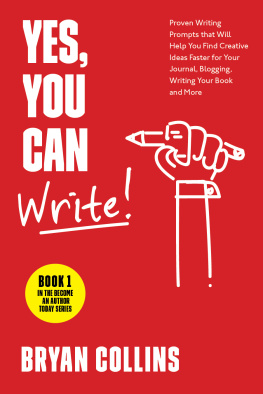
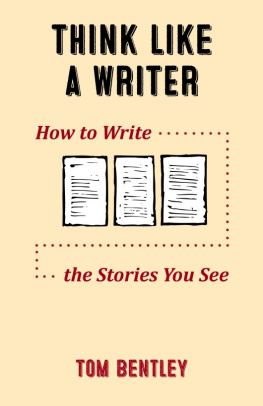
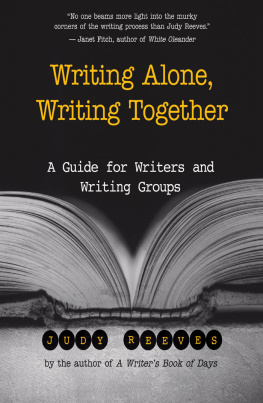
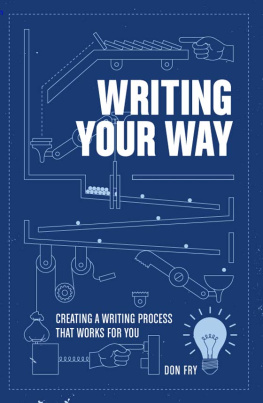
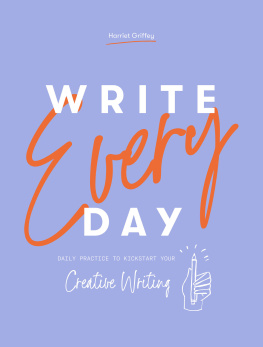
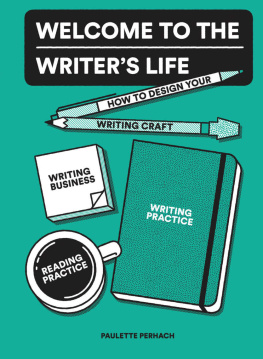

 Writing Poetry to Save Your Life: How to Find the Courage to Tell Your Stories Maria Mazziotti Gillan
Writing Poetry to Save Your Life: How to Find the Courage to Tell Your Stories Maria Mazziotti Gillan  MIROLAND (GUERNICA) TORONTO BUFFALO BERKELEY LANCASTER (U.K.) 2013 Contents Introduction When I first started to consider putting together a book about writing poetry, I thought about how frightened people often are by the idea of poetry writing it, reading t, feeling that they have anything to write about that anyone else would be interested in reading. I realized that my whole life as a poet and teacher was dedicated to giving people a feeling that their lives, that what they have to say, is important. I believe we all have stories to tell, and that those stories are the basis for writing poems that reach across the barriers of age, ethnicity, gender, social class to connect with all that is human inside us. I think of William Faulkners Nobel Prize acceptance speech in which he said: Writing today has forgotten the problems of the human heart in conflict with itself which alone can make good writing because only that is worth writing about, worth the agony and the sweat. In order to overcome our own fear about writing, our own lack of self-confidence in facing the blank page, we need to learn to let go. When were writing, we need to get to that place where the pen moves almost by itself.
MIROLAND (GUERNICA) TORONTO BUFFALO BERKELEY LANCASTER (U.K.) 2013 Contents Introduction When I first started to consider putting together a book about writing poetry, I thought about how frightened people often are by the idea of poetry writing it, reading t, feeling that they have anything to write about that anyone else would be interested in reading. I realized that my whole life as a poet and teacher was dedicated to giving people a feeling that their lives, that what they have to say, is important. I believe we all have stories to tell, and that those stories are the basis for writing poems that reach across the barriers of age, ethnicity, gender, social class to connect with all that is human inside us. I think of William Faulkners Nobel Prize acceptance speech in which he said: Writing today has forgotten the problems of the human heart in conflict with itself which alone can make good writing because only that is worth writing about, worth the agony and the sweat. In order to overcome our own fear about writing, our own lack of self-confidence in facing the blank page, we need to learn to let go. When were writing, we need to get to that place where the pen moves almost by itself.